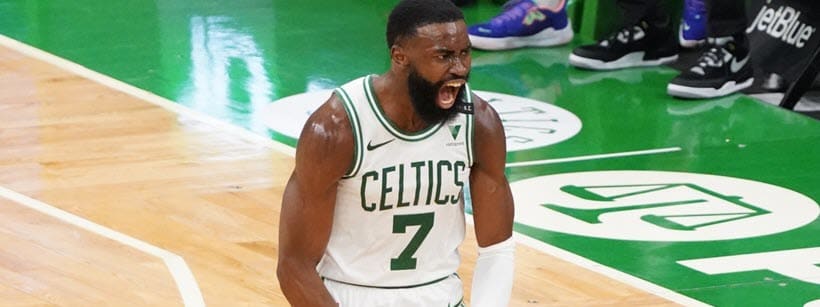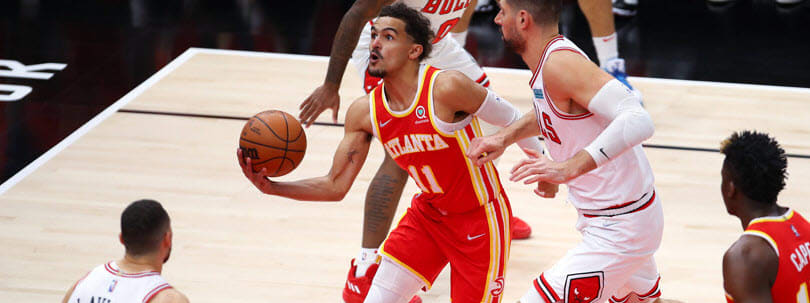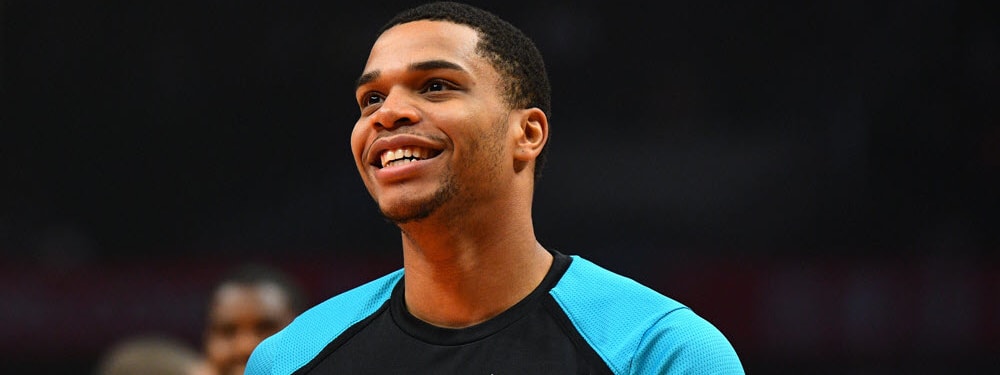Recent RotoWire Articles Featuring Trey Burke
See More
While Burke will open the season with the Rockets, there is a chance he doesn't even make the final roster given their current trajectory. He does have the ability to score the basketball when handed a sizeable role, but he is simply too one-dimensional to warrant the attention of most teams. Until we get a better idea of exactly what his role will be, and where he will be playing, Burke can be ignored in most fantasy formats.
In his eighth season, Burke played a reserve role and made small contributions to the Mavericks. He put up 6.6 points, 1.3 assists and 0.9 rebounds across 14.7 minutes per game. As a backup behind superstar Luka Doncic, there wasn't much room for Burke to lead the Mavericks offensively. Tim Hardaway and Jalen Brunson remain on the roster, and with Reggie Bullock signing with Dallas in free agency, Burke is unlikely to play enough minutes to be relevant in even the deepest of fantasy leagues.
Burke signed a contract with the 76ers prior to the 2019-20 season. He saw a relatively small role with Philadelphia, averaging 5.9 points, 2.1 assists and 1.4 rebounds in 13.2 minutes. He was waived by the team on Feb. 6, not signing another contract until play resumed in the Orlando bubble, when he inked a substitution contract with the Mavericks. Though it was too late for fantasy managers, Burke came alive with Dallas, averaging 12.0 points, 3.8 assists, 1.9 rebounds and 1.1 steals in 23.9 minutes. He had a strong playoff run, too, averaging similar numbers. The 28-year-old guard is a free agent in the 2020 class, and his fantasy outlook won't be clear until we know what team he signs with. That said, on a per-game basis, Burke's best season was his rookie campaign when he ranked 142nd. So, regardless of where he ends up, he'll likely only be relevant in deeper leagues.
Burke's star-crossed career heads to Philadelphia to kick off the 2019-20 campaign. The 2013 ninth overall pick split his time between the Mavericks and Knicks last season, averaging a combined 10.9 points (on 43.1 percent shooting, including 35.2 percent from three-point range), 2.7 assists and 1.7 rebounds across 19.4 minutes over 58 games. The exact extent of his role in the Sixers backcourt rotation is to be determined over training camp and preseason, but what's much more certain is Burke's ability to offer starter-quality production when given sufficient minutes. The latest example of such came last season, when Burke posted 30 double-digit scoring efforts, including five performances of 20 points or better, despite logging just eight starts. Ben Simmons will naturally receive the lion's share of playing time at point guard as long as he's healthy, but Burke offers considerably more scoring upside than fellow vet and former Jazz teammate Raul Neto, and he's exponentially more proven than second-year guard Shake Milton.
Burke struggled to make much of an impact with the Wizards in 2016-17, which resulted in a lack of suitors when he joined the free agent market in the summer of 2017. After failing to make an opening night roster, Burke joined the G-League and ended up dominating his competition there, averaging 26.6 points and 5.4 assists. As a result, the Knicks, who were dealing with some depth issues in the backcourt, opted to give him a look and signed him for the rest of the season. Burke wound up being a nice surprise in 36 games (nine starts) for New York, posting averages of 12.8 points, 4.7 assists, 2.0 rebounds and 1.1 three-pointers across 21.8 minutes. He also shot 50.3 percent from the field and 36.2 percent from deep, both being more than respectable numbers despite the shortened campaign. After an impressive finish to the season, including a late March game against the Hornets where Burke put up a 42-point, 12-assist double-double, he now comes into the year with a safe spot on the roster. While the Knicks will likely prioritize developing fellow backcourt mate Frank Ntilikina, Burke should still see a fairly significant role and he could even earn a spot in the top unit with a strong camp. Look for him to push for minutes in the mid-20's, which will give him some utility as a late-round option in deeper leagues. He'll also be someone to look out for in DFS contests if he's expected to see an elevated role when considering the massive aforementioned outburst that Burke posted late last season.
Burke has seemingly backed his way into Utah's starting point guard job for the upcoming season with Dante Exum (ACL surgery) missing the entire 2015-16 campaign. The former Michigan standout actually began last year as coach Quin Snyder's starter, but over time, Exum won the job as Burke was moved to a sixth-man role off the bench. The allure of Burke's potential has worn off over his two seasons in the league as it seems evident now that he's an inefficient player who elects to shoot much too often and has problems defending on the other side of the court. Nevertheless, he muscled his way to an average of 12.8 points, 2.7 rebounds, 4.3 assists, 0.9 steals, 0.2 blocks, and 1.6 three pointers after a total of 76 outings where he saw 30 minutes per game. All those numbers are expected to be on the rise this season since the only other viable options to play point guard are Alec Burks, who openly prefers playing as a two guard, and Raul Neto, who hasn't even stepped foot on an NBA court yet. Potential investors in Burke will have to deal with his poor shooting from the floor, a career average of 37 percent, and hope that his inexplicable drop in free-throw percentage from 90 in his rookie year to 75 last season will hopefully come around as he makes the all-important transition into his third NBA season with an abundance of responsibility on his shoulders as the Jazz look to legitimately contend in the Western Conference.
Trey Burke is entering his second season in the NBA. He missed the first twelve games of his rookie season with a broken index finger on his shooting hand, but the 21-year-old was able to play in the remaining 70 games while averaging 12.8 points, 3.0 rebounds, 5.7 assists, 0.6 steals, and 1.6 three-pointers in 32 minutes per game. He proved to be one of the more productive rookies last season despite shooting a lowly 38 percent from the field. Burke was the undisputed starting point guard shortly after returning from injury, coming off the bench for only two games before usurping John Lucas, but he'll have more vaunted competition for the starting job nipping at his heels this season. Despite already having Burke on the roster, the Jazz drafted Dante Exum from Australia with the fifth-overall draft pick in the 2014 NBA Draft this summer. New coach Quin Snyder could shock the world and opt to start Exum over Burke at point guard, but Burke seems to have the advantage on the starting job with 68 NBA starts under his belt and two years of collegiate experience, including leading his team to the 2013 NCAA championship game. Burke spent the offseason working on his long-range shooting, his ability to finish at the rim, and his defensive awareness.
The Jazz acquired Burke – the 9th overall pick in the 2013 draft – from the Timberwolves with a draft-night trade and immediately installed the Michigan product as their starting point guard. Burke scored 18.6 points and dished out 6.7 assists for the Wolverines last year and led Michigan to the national title game against Louisville – winning most of the major college basketball postseason awards in the process. He did much of his damage from long range, attempting 5.1 shots from three-point range and hitting at a 38 percent clip. It appears they'll be taking a "sink or swim" approach to Burke's development – journeyman John Lucas is the only other established point guard on their roster currently. But he'll also have the benefit of just about the best tutor one can imagine for a rookie guard – Jazz legend and Hall-of-Famer John Stockton.












